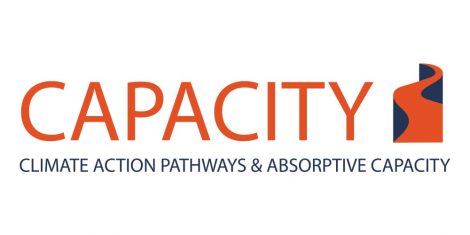
Post-Doctoral Researcher – CAPACITY
Would you like to work with a world-leading research group on a project directly contributing to the development of Ireland’s future climate and energy policy? Applications are invited for the post of post-doctoral researcher in Energy Systems Modelling to join the MaREI Centre for Energy, Climate and Marine, based at the Energy Policy and Modelling Group (EPMG) in UCC. The researcher will develop and support the evidence base for Irish climate and energy policy, working directly with the Irish Department of Environment, Climate and Communications (DECC) through the Climate Action Pathways & Absorptive Capacity (CAPACITY) project.
Role
MaREI
The MaREI Centre of Energy, Climate and Marine (www.marei.ie) is the Science Foundation Ireland (SFI) centre of excellence in Energy, Climate and Marine research in Ireland. The MaREI Centre includes 13 Universities, Third Level Institutes and Research Organisations, has 103 industrial partners and has research funding of approximately €60m. It combines the expertise of a wide range of research groups and industry partners, with the shared mission of solving the main scientific, technical and socio-economic challenges across the energy, climate and marine domains. Researchers in the MaREI Centre have over 30 years of experience in conducting fundamental and applied research supported by competitively won national and international funding, and commercial contracts with government agencies and industry. MaREI’s strengths lie in the multi-disciplinary nature of its research teams, allowing it to combine insights across areas such as Marine Renewable Energy Technologies, Materials & Structures, Observations & Operations, Coastal & Marine Systems, Bioenergy, Circular Economy, Energy Policy & Modelling, and Renewable Energy Management.
CAPACITY
CAPACITY project: The Climate Action Pathways & Absorptive Capacity (CAPACITY) project is funded by the Department of Environment, Climate and Communications (DECC). The objectives of the project are to i) develop and maintain a suite of energy system models to contribute to the evidence base for Irish climate and energy policy and ii) to support absorptive capacity building across relevant government departments, agencies and semi-state bodies. The CAPACITY project combines technical modelling expertise with engagement and capacity building activities in a unique way. It provides an opportunity for motivated and ambitious researchers to see their research make a difference in the policy domain. UCC and the CAPACITY project are members of the Climate Action Modelling Group (CAMG) within the Department of Environment, Climate and Communications. CAMG was established in 2015 to support the development of short-term and long-term evidence-based climate and energy policy in Ireland. The CAMG is a high-level technical group comprised of experts from a cross-section of relevant Government Departments and State Agencies as well as representation from academic institutions, including UCC.
Research Group
MaREI’s Energy Policy and Modelling Group (EPMG) in UCC has been engaged in energy policy and energy modelling research for over 20 years. The results of this research have been published in journal papers, conference proceedings and reports which have directly informed the development of national and European energy and climate mitigation policy. EPMG are very engaged in disseminating research findings and have won research awards for impact, engagement, and communications of research findings. The focus of research in the Energy Policy and Modelling Group is on integrated energy systems modelling comprising i) sectoral energy demand and efficiency, ii) integrated electricity, gas and water modelling and iii) full energy systems modelling. EPMG is led by Prof. Brian Ó Gallachóir (Chair of Energy Engineering; Chair of the Executive Committee of the IEA Technology Collaboration Programme on energy systems modelling (IEA-ETSAP)), Professor Hannah Daly (Professor of Sustainable Energy), Dr Paul Deane (Senior Research Fellow in Energy Futures) and Dr Fionn Rogan (Senior Research Fellow in Energy Systems Modelling).
Closing date for receipt of applications is 12 noon (Irish Local Time) on Friday, 17 February 2023. CVs and handwritten forms will not be accepted.
Late applications will not be accepted.





